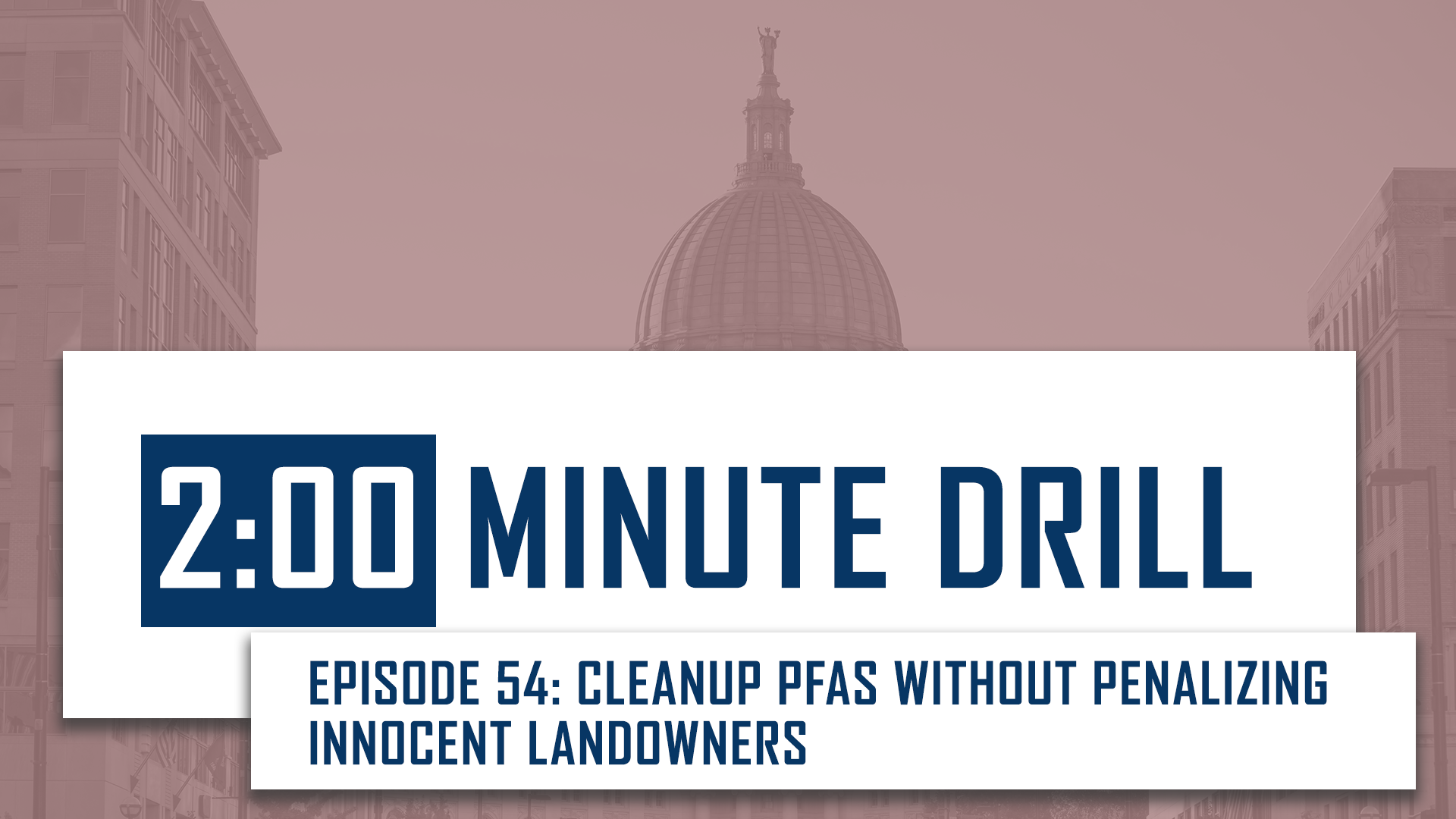By Scott Manley
WMC Senior Vice President of Government Relations
This column was published in the 2017 edition of Wisconsin Business Voice.
There are many facets to WMC’s lobbying agenda. One day we are advocating for additional technical education opportunities for high school kids to address the skilled worker shortage and the next day we are advocating for employment law changes to reduce complexity for employers.
When you represent nearly 4,000 small, medium and large businesses in every sector of the economy, you necessarily tackle a very broad array of issues impacting employers.
Yet over the years, something has remained constant in our advocacy. We have consistently held that the recipe for economic success is the same for any business, regardless of size and regardless of economic sector.
What is the magic formula?
We have consistently maintained that if you get three things right, economic investment and prosperity will follow. Those three things are tax reform, regulatory reform and legal reform. WMC has spent more time and effort focusing on these three things than any organization in Wisconsin.
It shouldn’t be surprising that taxes, regulation and litigation sit atop the list of policies that can make or break economic competitiveness—all three are key factors in the cost structure for every business. Whether you are a foundry, a bank, a software developer or biomedical engineering firm, if your tax, regulatory and legal costs are too high, you will not be competitive. It’s that simple.
Yet WMC is often criticized for spending so much effort to reduce tax, regulation and litigation costs and thereby make doing business more affordable. Our critics say we should instead focus on the “new economy” or the “knowledge economy” or the “green economy” or the “tech economy” or whatever the trendy new buzzword is among the chattering class of “experts” and academics who have never actually run a successful business.
No matter the economic sector, if you don’t have a competitive cost structure, you don’t have a competitive business. Reducing the cost structure for taxes, regulation and litigation is inherently good for all businesses—including those in the so-called “new,” “next” or “knowledge” economies.
The proof lies in Foxconn.
Wisconsin landed the Foxconn investment in large part due to the skill and expertise of Governor Scott Walker and the leadership team in his administration who negotiated with the company. However, Wisconsin was given serious consideration in the first place because of the reforms to tax, regulation and litigation that began six years ago—and continue today.
In the area of taxation, the last six years has seen Wisconsin cut income taxes across the board, freeze property taxes, virtually eliminate the income tax on manufacturing, eliminate the state property tax, substantially reduce the technical college property tax, eliminate the alternative minimum tax and significantly reduce the personal property tax.
On the regulatory front, we enacted Right to Work, brought huge reforms to our unemployment benefit laws, significantly curtailed state agency rule making authority and prohibited agencies from enacting new regulations costing $10 million or more unless the legislature votes to approve them.
In the area of legal reform, we reversed a terrible Supreme Court decision that made manufacturers liable for harm caused by products they didn’t make, placed caps on punitive damages, created standards for expert witnesses, enacted product liability reforms and passed other measures that enhance the fairness and transparency of our legal system.
These tax, regulatory and legal reforms have created an environment where businesses want to invest. They helped provide the competitive cost structure that caused Foxconn, the ninth-largest technology company in the world, to come to Wisconsin and produce the only LCD display panels in the world outside of Asia. A business like Foxconn doesn’t decide to invest $10 billion and employ 13,000 workers here unless our overall business climate is competitive.
There are certainly other reasons Foxconn chose Wisconsin, including our manufacturing heritage, skilled workforce and educational institutions. Those factors should not be minimized. However, we never even get the opportunity to showcase those assets if we don’t have the right tax, regulatory and legal climate that causes employers to consider investing in Wisconsin in the first place.
Foxconn’s historic investment in Wisconsin is only the beginning. Creating an ecosystem for 8K-5G technology will attract investment to our state, and the multiplier jobs that go along with it, which exceeds anything we have ever seen before in our state. We believe the project will serve as a magnet to attract talent to our state and reverse our problem with “brain drain,” much in the same way workers flocked from all over the country to the economic opportunity resulting from the oil boom in North Dakota.
None of this tremendous investment will be the result of adopting boutique, fad or niche development policies. Rather, our success will come from sticking to the fundamentals—and aggressively advocating for tax, regulatory and legal reforms. It’s a proven plan with a proven track record.
See the full issue of Wisconsin Business Voice.

Episode 54: Clean Up PFAS Without Penalizing Innocent Landowners
https://youtu.be/cQd0flOJmso WMC is highlighting a proposal from the Wisconsin Legislature to protect innocent landowners from being unfairly penalized as polluters while enabling targeted PFAS cleanup.




